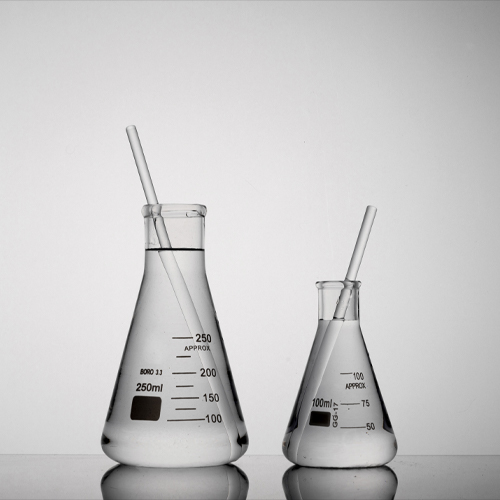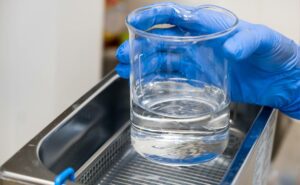Einführung
Natürliche Fettalkohole sind eine Gruppe organischer Verbindungen, die aus verschiedenen Quellen stammen, darunter Pflanzenöle und tierische Fette. Sie werden in zahlreichen Branchen eingesetzt, von der Hautpflege und Kosmetik bis hin zu industriellen Anwendungen. In diesem Artikel untersuchen wir, was natürliche Fettalkohole sind, woher sie kommen, welche Vorteile sie haben, welche Sicherheitsaspekte es zu beachten gilt und wie Sie sie in Ihren Alltag integrieren können.
What Are Natural Fatty Alcohols?

Natural fatty alcohols are a group of organic compounds that can be found in various natural sources. These alcohols are characterized by their long-chain structure and are derived from fats and oils obtained from plants and animals. They play a significant role in various industries due to their unique chemical properties. These properties make them distinct from the type of alcohol found in alcoholic beverages, as natural fatty alcohols are primarily used in the production of a wide range of products rather than for consumption.
Sources of Natural Fatty Alcohols
Fatty Alcohols in Plant Oils
“Fatty alcohols in plant oils” pertain to a specific group of compounds that are derived from the fats and oils of plants. These fatty alcohols are produced through a chemical process known as hydrogenation. Plant-based oils, like coconut oil, palm oil, and shea butter, contain fatty acids that can be transformed into these valuable fatty alcohols. These plant-derived fatty alcohols are widely appreciated for their unique properties and are commonly used in various cosmetic products due to their moisturizing and emollient attributes.
Fatty Alcohols in Animal Fats
Tallow and lard are examples of animal fats that contain fatty acids, which can undergo a conversion process into fatty alcohols. These specific fatty alcohols obtained from animal fats are commonly utilized in industrial applications, particularly in the production of detergents and lubricants. Their properties make them valuable ingredients in these products, contributing to their effectiveness and performance.
Benefits of Natural Fatty Alcohols
Natural fatty alcohols offer numerous benefits, making them a valuable ingredient in various products.
Skincare and Cosmetics
The use of natural fatty alcohols in skincare and cosmetics is quite widespread. These alcohols are highly regarded for their ability to provide essential benefits to the skin and enhance the quality of cosmetic products.
One of their primary functions in skincare products is to moisturize the skin. Natural fatty alcohols have a remarkable capacity to lock in moisture, preventing the skin from becoming dry and flaky. They also contribute to the silky texture of products such as lotions, creams, and lip balms, making them easy to apply and ensuring they feel smooth on the skin.
Importantly, natural fatty alcohols are considered non-comedogenic, meaning they don’t clog pores. This attribute makes them suitable for individuals with different skin types, including those who may be prone to acne. Their non-comedogenic nature ensures that they won’t exacerbate skin issues, making them a safe and reliable choice in skincare products.
In cosmetics, natural fatty alcohols serve a dual purpose. They can act as emollients, providing a soft and soothing texture to makeup products, such as foundations and concealers. Additionally, they aid in creating products that glide effortlessly on the skin, enhancing the overall makeup application experience.
Hair Care Products
Natural fatty alcohols also play a vital role in the realm of hair care products, offering numerous advantages for your tresses.
One of their key benefits in hair care is their ability to soften and condition hair. Natural fatty alcohols can penetrate the hair shaft, providing moisture and improving the hair’s texture. This makes them particularly useful in products like shampoos and conditioners. When you use these products, you’ll likely notice that your hair becomes more manageable, easier to comb or brush, and feels smoother to the touch.
Natural fatty alcohols help in maintaining the moisture balance of the scalp as well. A well-moisturized scalp is essential for healthy hair growth and overall hair health. By incorporating these alcohols into hair care products, you can ensure that your scalp remains adequately moisturized, reducing the risk of dryness and itchiness.
Additionally, these alcohols are often used in hair styling products, such as creams, serums, and hair masks. They provide a lightweight, non-greasy texture, making it easier to style your hair and achieve the desired look without weighing it down or making it appear oily.
Industrial Uses
In the world of hair care products, natural fatty alcohols are often considered essential ingredients, valued for their numerous advantages. These alcohols have a significant impact on the health and appearance of your hair and scalp, making them a common inclusion in shampoos, conditioners, and other hair treatments.
One of their standout benefits is their remarkable capacity to soften and detangle hair. Natural fatty alcohols, by virtue of their chemical structure, work as excellent emollients. They effectively coat the hair shaft, providing a layer of lubrication that smooths the hair cuticle. This smoothing effect reduces friction between individual hair strands, making it easier to comb or brush your hair. As a result, you experience fewer tangles and knots, enhancing the overall manageability of your hair. This advantage is especially appreciated by individuals with long or curly hair, where detangling can often be a challenging task. Additionally, this reduced friction helps minimize hair breakage during styling, promoting healthier, more robust hair.
Beyond their detangling properties, natural fatty alcohols also contribute to maintaining the moisture balance of the scalp. A well-hydrated scalp is crucial for overall hair health, as it can prevent issues like dryness, itchiness, and flakiness. These alcohols help by retaining moisture in the scalp and preventing excessive drying, creating a more comfortable and nourishing environment for the hair follicles.
Are Natural Fatty Alcohols Safe?
The safety of natural fatty alcohols largely hinges on their specific use and an individual’s unique skin type and sensitivities. In most cases, these alcohols are well-tolerated by the majority of people. They are non-irritating and non-sensitizing, which means they are unlikely to cause skin irritation or allergic reactions.
However, it’s crucial to acknowledge that everyone’s skin is different. Some individuals may have particular sensitivities or allergies to certain cosmetic ingredients, including natural fatty alcohols. If you have a history of skin conditions or known sensitivities, it’s advisable to perform a patch test before using products containing these alcohols. A patch test involves applying a small amount of the product to a small area of skin (typically on the inner arm) and monitoring for any adverse reactions, such as redness, itching, or rash.
The safety of these alcohols is also influenced by the concentration in the product. While low concentrations are generally well-tolerated, some individuals may experience mild skin reactions at higher concentrations. As such, it’s important to follow the manufacturer’s recommended usage guidelines and, if available, consult with a dermatologist if you have concerns about product safety.
How to Incorporate Natural Fatty Alcohols into Your Routine

Incorporating natural fatty alcohols into your daily routine is a straightforward process, and it can bring about significant benefits for your skin and hair. These versatile compounds are readily available in various skincare, hair care, and cosmetic products. Here’s how you can seamlessly include them in your beauty regimen:
- Choose the Right Products: The easiest way to introduce natural fatty alcohols into your routine is by selecting products that already contain them. Look for moisturizers, lotions, creams, shampoos, conditioners, and other cosmetics that list natural fatty alcohols among their ingredients. These products are often clearly labeled, making it easy to identify them.
- Read Labels: Pay attention to the ingredient lists on product labels. Natural fatty alcohols may go by various names, such as cetyl alcohol, stearyl alcohol, or cetearyl alcohol. Familiarize yourself with these names to recognize them when you see them in products.
- Tailor to Your Needs: Consider your specific skincare and hair care needs. If you have dry skin, you might opt for a moisturizer rich in natural fatty alcohols. For those with unruly or frizzy hair, a conditioner containing these alcohols can work wonders. By choosing products that align with your unique needs, you can maximize the benefits.
- Patch Test: Especially if you have sensitive skin or have never used products with natural fatty alcohols before, it’s a good practice to perform a patch test. Apply a small amount of the product to a discreet area of your skin and monitor for any adverse reactions. This step ensures that the product is well-suited to your skin.
- Follow a Routine: Consistency is key to reaping the full benefits of natural fatty alcohols. Incorporate these products into your daily or weekly routine as needed. For skincare, apply moisturizers or creams after cleansing, and for hair care, use shampoos and conditioners regularly to maintain soft and manageable hair.
- Combine with Other Products: Natural fatty alcohols complement various other skincare and hair care products. You can combine them with serums, oils, and other treatments to achieve a comprehensive beauty regimen tailored to your specific goals.
- Monitor Results: Pay attention to how your skin or hair responds to the incorporation of natural fatty alcohols. You should notice improvements in terms of skin hydration, softness, and smoother hair. If you encounter any adverse effects, discontinue use and consult a dermatologist.
- Stay Informed: Stay informed about the latest products and developments in the skincare and hair care industry. New formulations containing natural fatty alcohols are continually being introduced, offering innovative solutions to address different beauty concerns.
Challenges and Considerations
As with any versatile ingredient used in various industries, natural fatty alcohols come with their set of challenges and considerations, particularly in the context of their sourcing and environmental impact.
- Sourcing Practices: One of the key challenges is the ethical and sustainable sourcing of natural fatty alcohols. The demand for these alcohols has led to concerns about the overharvesting of plants or the treatment of animals in the production of animal-derived alcohols. Sustainable and ethical sourcing practices are crucial to ensure the long-term availability of these valuable ingredients while minimizing harm to the environment and wildlife.
- Umweltbelastung: The production of natural fatty alcohols, especially when derived from palm oil, has been associated with deforestation and habitat destruction. To address this issue, it is essential for producers to adopt sustainable palm oil practices or seek alternative sources to minimize their environmental impact.
- Allergenic Potential: While natural fatty alcohols are generally well-tolerated, some individuals may be sensitive or allergic to these compounds. It’s vital for consumers to be aware of their own sensitivities and perform patch tests when trying new products containing natural fatty alcohols.
- Industry Regulations: The cosmetics and skincare industry is subject to stringent regulations and standards that vary by region. Ensuring compliance with these regulations can be a challenge for manufacturers and may affect the availability and formulation of products containing natural fatty alcohols.
- Consumer Education: Many consumers are not fully informed about the ingredients in the products they use. Raising awareness about natural fatty alcohols, their benefits, and potential sensitivities is essential to empower individuals to make informed choices about the products they incorporate into their beauty routines.
- Formulation Challenges: For product manufacturers, incorporating natural fatty alcohols into formulations can sometimes be challenging due to their unique properties. Achieving the desired texture, consistency, and efficacy of the final product while preserving the benefits of these alcohols can be a delicate balance.
- Varying Quality: The quality of natural fatty alcohols can differ depending on their source and processing methods. Manufacturers must select high-quality sources and processing techniques to ensure the end product meets consumer expectations.
Fazit
Natural fatty alcohols are versatile and beneficial ingredients that have found their way into various products we use daily. Whether you’re looking for skincare solutions or effective industrial ingredients, these alcohols have proven their worth. As with any ingredient, it’s important to be aware of potential sensitivities and choose products that align with your values.
Häufig gestellte Fragen
Are natural fatty alcohols suitable for all skin types?
Yes, natural fatty alcohols are generally suitable for all skin types. However, individuals with specific skin conditions should conduct a patch test to ensure compatibility.
Can natural fatty alcohols be used in natural and organic products?
Absolutely. Natural fatty alcohols are a common ingredient in natural and organic skincare and hair care products.
Are there any known side effects of using products with natural fatty alcohols?
There are no common side effects associated with natural fatty alcohols. However, individuals with known sensitivities or allergies should exercise caution.
Are natural fatty alcohols eco-friendly?
The eco-friendliness of products containing natural fatty alcohols depends on their sourcing. Ethical and sustainable sourcing practices are essential for minimizing the environmental impact.
Where can I find products containing natural fatty alcohols?
You can find these products in most drugstores, supermarkets, and online retailers. Always check the ingredient list to confirm their presence.



